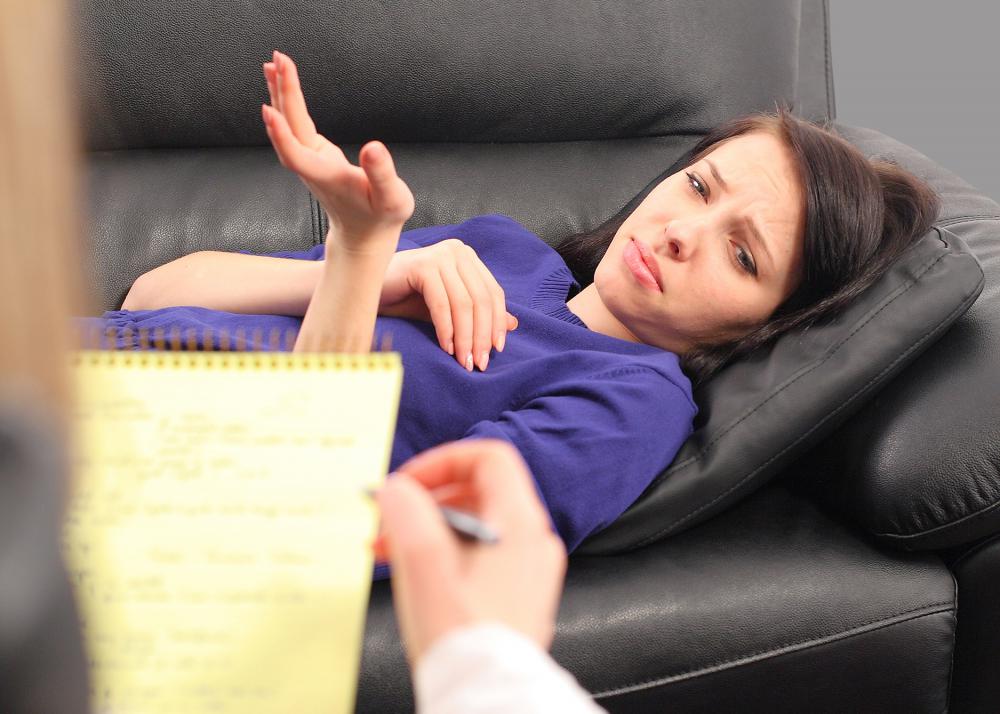At WiseGEEK, we're committed to delivering accurate, trustworthy information. Our expert-authored content is rigorously fact-checked and sourced from credible authorities. Discover how we uphold the highest standards in providing you with reliable knowledge.
What Are the Benefits of Combining Yoga and Psychotherapy?
Both yoga and psychotherapy have many benefits on the emotional well-being of individuals. The practices can be combined for greater benefits than either on its own because as tension is released from the body, it becomes easier to open up for psychotherapy treatment. Other benefits include a greater ability to relax, an ability to see the self more clearly, and a different way of organizing thought patterns. Yoga and psychotherapy provide greater freedom in the ability to heal from past thoughts, memories, and emotional wounds that can remain with people for a long time if left unchallenged.
Certain types of yoga can be done in a very gentle way to cultivate tenderness and vulnerability in the person practicing it. Kundalini and hatha styles of yoga are often used in yoga and psychotherapy because the emphasis is on breath work and the energy centers of the body, rather than moving quickly to get fit. Breathing slowly and meditatively while moving through yoga poses provides the benefit of relaxation in the individual practicing it. This is helpful when yoga and psychotherapy are done together because many people get nervous when faced with looking into themselves on a deeper level than normal. If an individual is relaxed from performing yoga, he or she becomes more willing to talk about issues that otherwise would not be addressed.

When yoga is practiced prior to, or during, psychotherapy, the individual is able to gain deeper clarity through gaining awareness of the body. Since the body and mind are connected, when energy is released from the body in an intentional way, the individual is able to connect with the emotions felt in the present moment. If the psychotherapist is trained in counseling and yoga, he or she can take advantage of this present moment awareness to bring out insights in his or her client. This can lead to epiphanies within an individual regarding the reason he or she is undergoing psychotherapy.

Many people have negative patterns running through their minds a lot of the time, and yoga helps to stop those kinds of thoughts and replace them with gentleness, even if the emotions being experienced are negative. It is common for people to block the experience of emotions because they can be painful and scary. Once an individual is brought into a safe and gentle space because of yoga and psychotherapy, he or she can experience the emotions and allow them to heal.
AS FEATURED ON:
AS FEATURED ON:












Discuss this Article
Post your comments